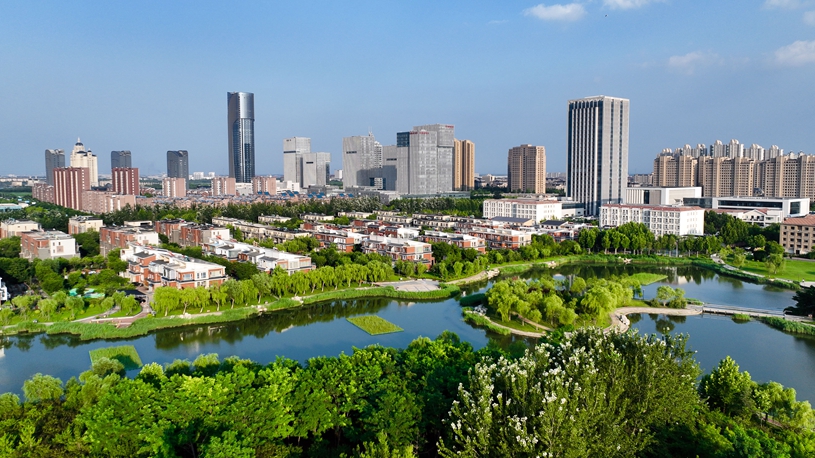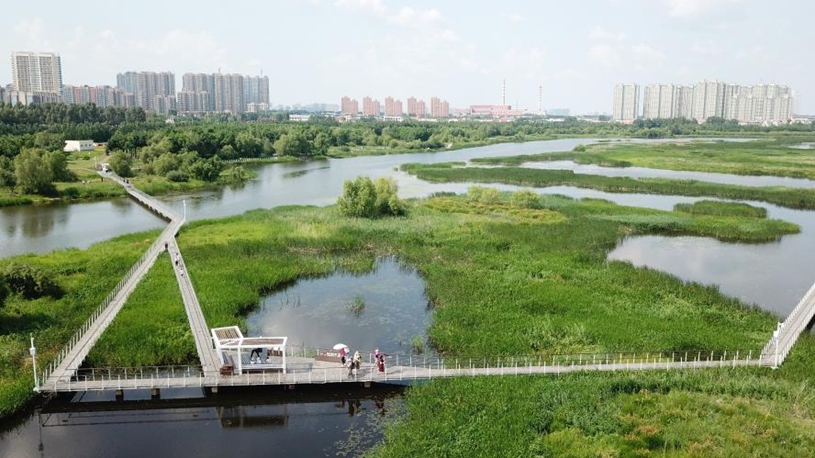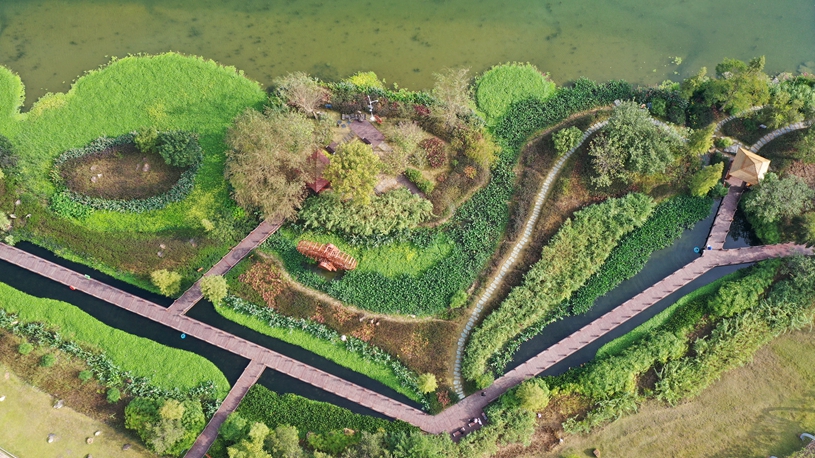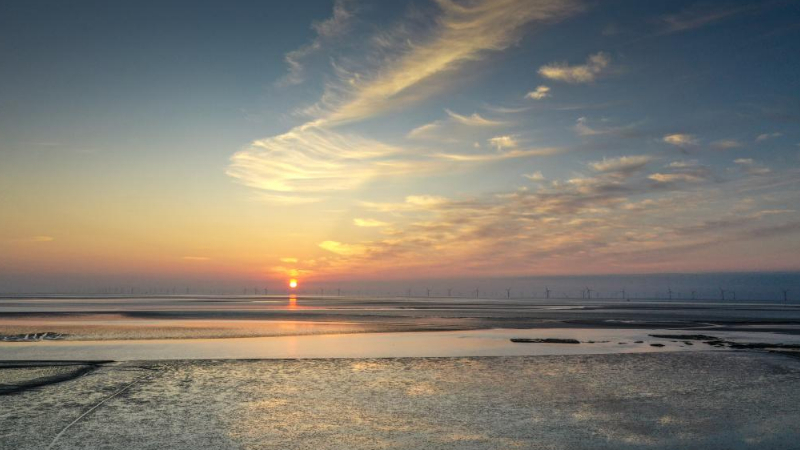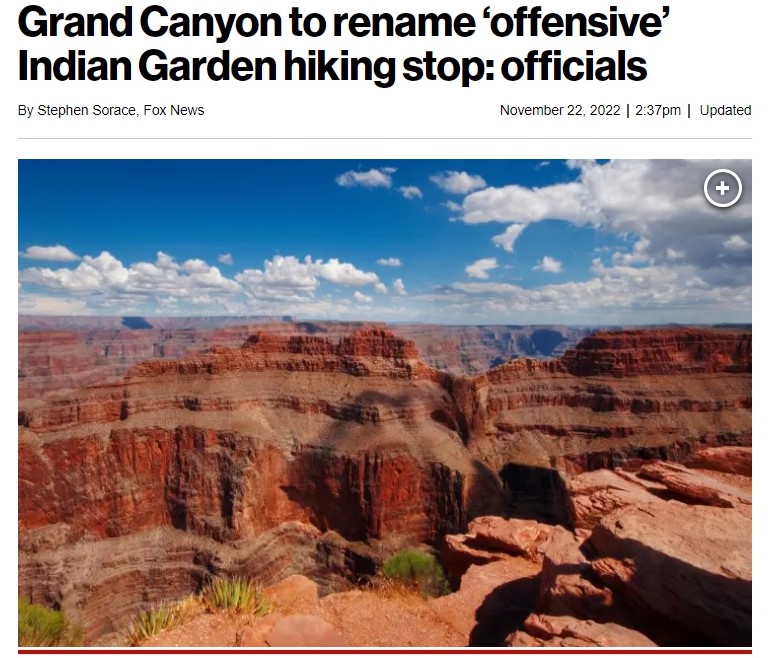
The screenshot taken from the website of the New York Post on Nov. 24, 2022 shows the title and picture of its latest report about the renaming of Indian Gardens, a location along the Grand Canyon National Park's popular Bright Angel Trail. (Xinhua)
Efforts are already underway to update signage, website and other materials with the new name. A rededication ceremony is planned for the spring.
DENVER, the United States, Nov. 24 (Xinhua) -- A prominent national landmark in U.S. Southwest is getting a name change finally this week, as indignant human rights groups and wrongfully-treated Native American tribes are getting action from the federal government to help rectify century-old slights.
The most recent case applauded by local media involves U.S. most famous and internationally popular national park, the Grand Canyon National Park in Northern Arizona.
A popular hiking spot in the massive Grand Canyon changed its racially "offensive" name after an agreement was reached with a local Native American tribe which had been forced out of the area almost a century ago.
Indian Gardens, a location along the Grand Canyon National Park's popular Bright Angel Trail, is now called Havasupai Gardens, the National Park Service (NPS) said in a statement released Monday. It was previously known as Ha'a Gyoh in the Havasupai language.
The move reflects the fact that the NPS instituted policies that forced the Havasupai people, who had lived in the Grand Canyon for at least 800 years, from Ha'a Gyoh and in 1928, the last Havasupai resident, Captain Burro, was forcibly removed.
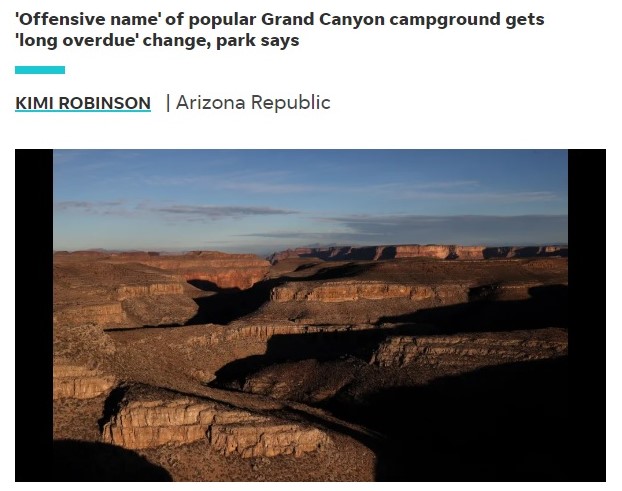
The screenshot taken from the website of USA Today on Nov. 24, 2022 shows the title and picture of its latest report about the renaming of Indian Gardens, a location along the Grand Canyon National Park's popular Bright Angel Trail. (Xinhua)
Today, Havasupai is a federally recognized Indian Tribe located in northwestern Arizona with only 730 members.
"The eviction of Havasupai residents from Ha'a Gyoh coupled with the offensive name, Indian Garden, has had detrimental and lasting impacts on the Havasupai families that lived there and their descendants," the NPS statement said. "Every year, approximately 100,000 people visit the area while hiking the Bright Angel Trail, largely unaware of this history. The renaming of this sacred place to Havasupai Gardens will finally right that wrong."
Efforts are already underway to update signage, website and other materials with the new name, the NPS added. A rededication ceremony is planned for the spring.
"The Havasupai people have actively occupied this area since time immemorial, before the land's designation as a National Park and until the park forcibly removed them in 1926. This renaming is long overdue. It is a measure of respect for the undue hardship imposed by the park on the Havasupai people," Grand Canyon park superintendent Ed Keable said.
The name change followed the initiative led by Interior Secretary Deb Haaland, the first Native American cabinet secretary in U.S. history, to rename nearly 650 geographical locations that bear a racist slur for a Native American woman and name changes advanced by local governments in U.S. West based on extensive tribal engagement.
In September, California Governor Gavin Newsom signed a state bill into California law that would remove the word "squaw" from places in California by 2025 and create a process to review petitions to change offensive or derogatory place names against Native Americans.
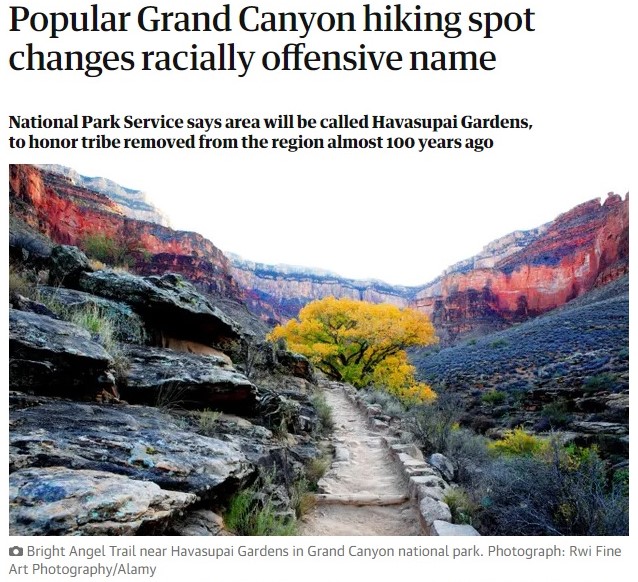
The screenshot taken from the website of The Guardian on Nov. 24, 2022 shows the title and picture of its latest report about the renaming of Indian Gardens, a location along the Grand Canyon National Park's popular Bright Angel Trail. (Xinhua)
Last week, about 700 km northeast of the Grand Canyon, in the Rocky Mountains, Colorado's Geographic Naming Advisory Board voted unanimously to recommend renaming Mount Evans to Mount Blue Sky.
The vote came after months of discussions, presentations and public comment. Colorado Governor Jared Polis and the U.S. Board of Geographic Names are expected to approve the change.
One of Colorado's 58 internationally recognized "Fourteeners," 14,265-foot Mount Evans was named for former Colorado Territorial Governor John Evans, in office during the Sand Creek Massacre, a surprise attack where U.S. Army troops killed 230 Cheyenne and Arapaho people on Nov. 29, 1864, mostly women, children and older adults.
Native people have called for Evans' name to be removed from the mountain and that may finally occur before the new year.
Fred Mosqueda, a Southern Arapaho who has been fighting to erase the Evans name from Colorado's highest peak, was quoted by the Colorado Politics news website Wednesday the move signified the indigenous connections.
The Arapaho are known as the Blue Sky People, and the Cheyenne have an annual ceremony of renewal of life called Blue Sky. ■

